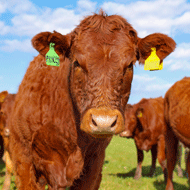Scientists develop new bTB test

The Actiphage test can detect live bacteria in blood or milk in as little as six hours.
A new testing kit for bovine tuberculosis (bTB) is set to bring fresh hope to farmers across the United Kingdom.
Developed by PDB Biotech, the Actiphage test can detect live bacteria in blood or milk in as little as six hours and has been proven to identify infected cattle before infection spreads.
“The existing skin test is based on the animal’s immune response, and takes three days to produce a result, but more worryingly is known to miss about 20 per cent of infected animals,” said Dr Cath Rees, co-founder of PBD Biotech.
“Our new test is unique as it is the only test that directly detects live bacteria in blood or milk and is fast, specific and highly sensitive. Additionally the test can distinguish between a vaccinated and an infected animal (DIVA test) paving the way for new types of disease control in the future when vaccines are available.”
The launch of the test follows a trial in the West Country with veterinary surgeon Dick Sibley. Sibley tested for bTB in blood, milk and faeces and found that the phage test was able to detect infection months before the skin test gave a positive result. By using the test, and introducing strict biosecurity and hygiene controls, Sibley managed to reduce levels of bTB from the herd, leading to the first clear skin test results for five years.
PBD Biotech states that the test is not yet licensed for commercial use. However, it is available for research and validation studies, which are vital for approval by Defra and other global authorities.
They add that it could also be used by the dairy industry, allowing for the rapid detection of contaminated milk. It may also give cows a clean bill of health before travel, preventing disease spread and giving the industry new ways to control movement of potentially infectious animals.
The test will be available from the end of November 2017 via www.pbdbio.com



 The Federation of Independent Veterinary Practices (FIVP) has announced a third season of its podcast, Practice Matters.
The Federation of Independent Veterinary Practices (FIVP) has announced a third season of its podcast, Practice Matters.